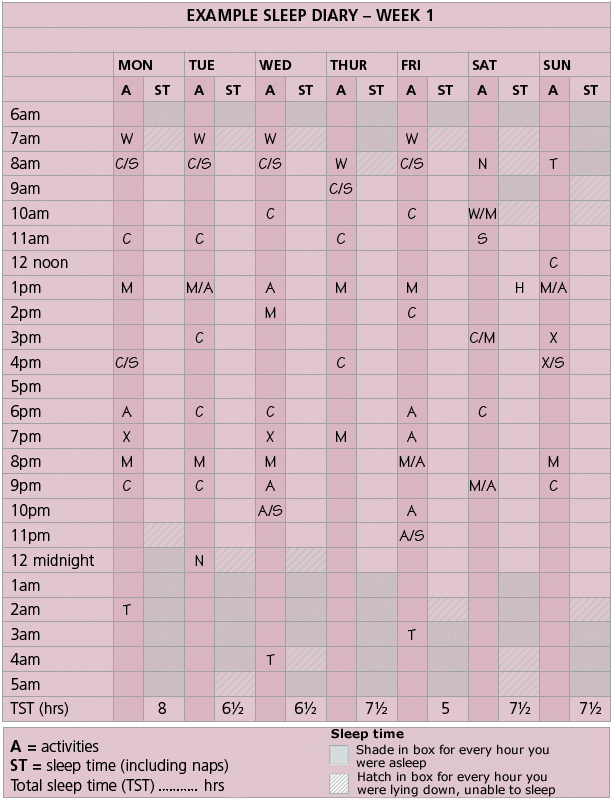Mood and Memory
| Q: |
Does mood affect the quality of sleep?
|
| A: |
Mood can certainly affect your ability to get to sleep or stay
asleep. High anxiety levels can lead to a state of hyperarousal
(increased alertness), thereby impairing your ability to get to sleep
and sometimes to stay asleep. A depressed mood can have varying effects
on sleep quality and quantity. Some evidence suggests that, during
severe depression, REM sleep starts earlier than normal and may occur
more frequently. Severely depressed people spend less time in stage 3
and stage 4 sleep. Some people feel they need to sleep longer, others
wake up frequently, and yet others have insomnia, particularly “terminal
insomnia” (awakening too early in the morning). If you feel your mood
is affecting your sleep patterns, it is best to seek medical advice.
|
| Q: |
What happens to memory as we fall asleep?
|
| A: |
Sleep onset closes the gate between short– and long-term memory
stores. This means that we don’t encode material prior to sleep
sufficiently strongly to recall it if sleep persists for approximately
10 minutes. We lose all memory of events that take place a few minutes
before sleep onset.
|
| Q: |
Is sleep important for memory?
|
| A: |
Yes, many studies have now shown that we need sufficient sleep
for our memory to function properly. If we are deprived of sleep our
ability to perform well on tasks that require vigilance and
concentration, as well as processing of information, markedly decreases.
A few studies have shown that even mild to moderate levels of sleep
deprivation can produce a level of functioning similar to being drunk.
|
Sleep Diary
How do you know you are
sleeping consistently well? One way of monitoring your sleep and sleep
patterns is to keep a sleep diary. Like all diaries, it helps to record
your activities during the day and particularly the amount of time you
spend asleep. Sometimes we are unaware of our bad habits until they are
pointed out to us. The diary helps you uncover any factors leading to
poor sleep. It is also a way of monitoring change or progress and in
particular, the treatments or changes in your behavior that may help you
sleep better.
Keep your sleep diary
beside your bed and fill it in every morning for 2 weeks– you can use
the example opposite for reference. Indicate for each day any events
that may have influenced or disturbed your sleep. If you do have
concerns about the quality of your sleep or sleep patterns, seek medical
advice.

